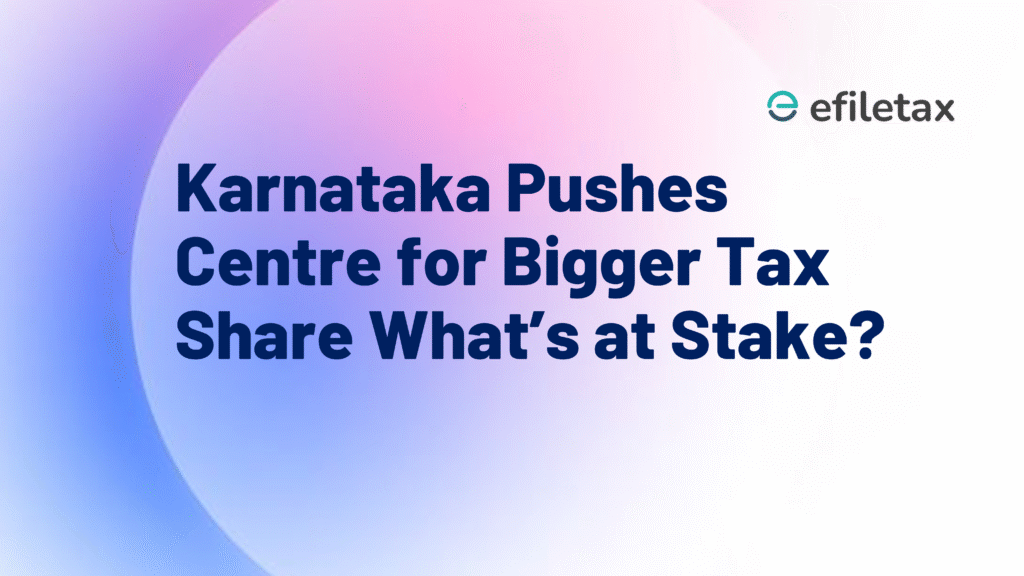
Why Karnataka Demands Higher Central Tax Share
Karnataka Demands Higher Central Tax Share — a topic making headlines as the state seeks fairer fiscal devolution to support its growing infrastructure and welfare needs. Let’s decode the reasons, data, and the legal backdrop behind this demand.
Context: How Central Tax Devolution Works
Under Article 280 of the Constitution, the Finance Commission recommends how central taxes should be shared between the Centre and states. Currently:
- 41% of net central tax revenue goes to all states collectively.
- Each state’s share depends on population, income distance, area, forest cover, etc.
- Karnataka’s share has been shrinking in percentage terms despite higher contributions.
(Source: 15th Finance Commission Report & Union Budget 2025)
Karnataka’s Argument for a Higher Share
Key reasons cited by Karnataka:
✅ High Tax Contributor: Karnataka contributes significantly via GST, income tax, and corporate tax.
✅ Population Growth Control: Lower population growth has paradoxically reduced its formula weightage.
✅ Urbanisation Needs: Bengaluru’s expansion requires huge investment in infrastructure and public services.
✅ Regional Imbalance: Higher funds needed for backward districts like Kalyana Karnataka.
Recently, the Karnataka CM set an ambitious ₹1.2 lakh crore target for commercial tax collection, reinforcing the state’s fiscal discipline.
Expert View: Is the Demand Justified?
Experts say the Finance Commission must balance equity and efficiency:
- States controlling population growth shouldn’t be penalised.
- Incentives for sustainable development must reflect in devolution formula.
A Supreme Court case in State of Punjab v. Union of India (2016) highlighted limits to judicial intervention — the final say rests with Parliament and the Finance Commission.
What Happens Next?
- Karnataka has formally submitted its memorandum to the 16th Finance Commission (constituted in December 2023).
- Other southern states like Kerala and Tamil Nadu echo similar concerns.
- A decision will influence state budgets for FY 2026–27 onwards.
Practical Tip for Taxpayers and Businesses
➡️ Stay Updated: Changes in devolution can indirectly affect state taxes, local cess, and business incentives. Efiletax recommends monitoring state budget announcements for new schemes or levies.
Quick FAQ
Q1: Who decides central tax share?
The Finance Commission, every five years, advises the President of India.
Q2: Can states legally challenge it?
Limited scope — it’s mostly a policy decision under constitutional provisions.
Q3: Will Karnataka’s share increase?
Too early to tell. Final report due in 2026.
Summary
Karnataka demands a higher central tax share to match its high tax contributions and rapid urban growth. The 16th Finance Commission will decide the allocation formula. Taxpayers should track state budgets, as shifts in central transfers can affect local taxes and incentives.
Final Note
Efiletax will keep you updated on major fiscal policy changes. Contact us for tailored tax compliance and advisory services!